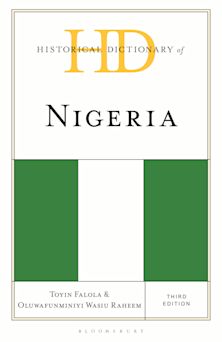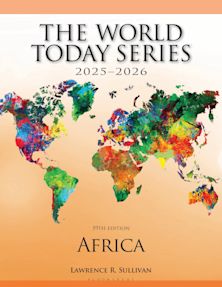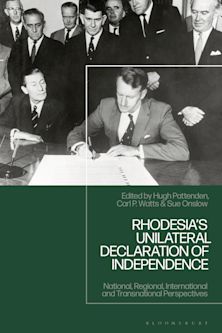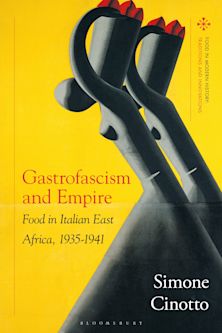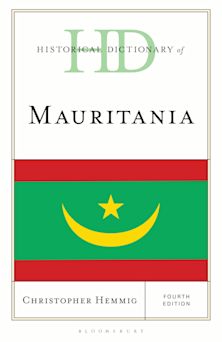- Home
- ACADEMIC
- History
- African History
- African Independence
You must sign in to add this item to your wishlist. Please sign in or create an account
Description
African Independence highlights the important role Africa has played in recent history and the significant role it will continue to play in the future of America and the globe. In a world where much of the power and wealth remains concentrated in the hands of a very few people, this book looks at how the history of African independence has touched all people—from refugees to heads of state.
Author Tukufu Zuberi weaves exclusive interview excerpts and stories from many Africans he has met with old newsreels, current news and reports, and research into a larger narrative that takes readers through key events in African history and shows their importance today. The book provides context for understanding connections between events in Africa and the world, such as Nigeria’s Boko Haram acts of war against the citizens of Nigeria and neighboring states, China’s rise as the main superpower with the largest financial connections to the African continent, and the so-called war against terrorism.
Zuberi is also the director of the documentary African Independence, which has won awards including Best Director and Best Documentary at the San Diego Black Film Festival, Best Director at The People’s Film Festival, Best African Film at the San Diego Black Film Festival, and more. Both alone and together, the book and film offer a deeper understanding of Africa’s central role in world affairs.
Table of Contents
Map of Colonial Africa, 1914
Map of Pre-Independence Africa, 1950
Map of Independent in Africa, 1994
Selected Chronology of Events
Acknowledgments
Introduction
Why I wrote this Book and Made a Film
My Point of View
How I Tell the Story
Chapter 1—From Colonialism to Pan Africanism: The Impact of World War II on Africa
Fascist War on Ethiopia
North Africa Campaign
African Contributions to the War Effort
African Post-War Response to Colonialism
African Post-War Uprisings
5th Pan-African Congress
Chapter 2—The End of Colonial Rule: Beginnings of Independence
The Movement Materializes
Political Independence in Ghana
The Spread of the Movement
Power of the Gun
Chapter 3—Africa in the Cold War: Repression and Liberation
The Cold War
African Decolonization and Repression
Patrice Lumumba’s Congo
Southern Africa
Coup After Coup
African Power in the Cold War
Apartheid
Chapter 4—April 1994 and Beyond: African Independence Today
The Post-Independence Map of Africa
April 1994
Post-Independence Unity
Traditional Ethnic Conflict
Hypocrisy, Terror, AID, and Crime
Extending African Independence
Product details
| Published | 01 Aug 2015 |
|---|---|
| Format | Ebook (Epub & Mobi) |
| Edition | 1st |
| Extent | 210 |
| ISBN | 9781442216433 |
| Imprint | Rowman & Littlefield |
| Illustrations | 54 b/w photos; 8 maps |
| Publisher | Bloomsbury Publishing |
About the contributors
Reviews
-
In this pleasant and accessible study, Zuberi, an academic and host of the PBS series History Detectives, guides readers through the historical and current straits of the vast continent of Africa. Zuberi documents the decisive role played by African soldiers in WWII and argues that the war's savagery exposed 'the myth of civilized Europe and barbaric Africa.' Though the Allied victory was 'forged with considerable African sacrifice,' much of the continent remained in European imperial hands. However, African participation in the defeat of the Axis powers rekindled anti-colonial aspirations, resulting in a series of uprisings and growing international support for decolonization. Regrettably, the Cold War derailed national independence movements and the continent again became 'locked in a death grip' by brutal military dictatorships supported by either the U.S. or the U.S.S.R. The era of globalization witnessed progress in such countries as South Africa, but lingering ethnic tensions stoked by colonial authorities and ruling elites erupted in bloodshed in Rwanda and Kenya. With appearances by a long roster of 'history makers'—including activists, leaders, and freedom fighters—Zuberi's work is a well-researched and informed, if selective, story of the making of modern Africa, and constitutes an impassioned plea to recognize the continent for more than the trouble it has endured. Maps and photos.
Publishers Weekly
-
Professor Zuberi, Professor of Sociology at the University of Pennyslvainia, has written an easy to read, absorbing and welcomed history of the African continent. He recounts how, over a long period of time, the wealth of this continent has been, in a sense, stolen for European usage rather than for the benefit of the local inhabitants. In a straight forward tone he further underscores the abuse of the peoples both socially and economically and questions whether equal value was gained by Africa for their contribution to the other parts of the world. . . .I am pleased to have read this book.
ImagineMag!: A South African Arts & Culture Magazine
-
Although Africa is often portrayed as a remote and impoverished area, remembered for the suffering of its people, it has played an important role in world history that is critical for understanding global events today. Zuberi walks audiences and readers through the years of African independence through the present, including colonialism, the impact of the of world wars, independence movements, the Cold War, ethnic conflict, terrorism and the health crisis. Combining newsreels, archival sources, and visits to African memorials and monuments, Dr. Zuberi helps viewers understand the human experience in Africa and how Africans were able to change their lives in the recent past.
The Philadelphia Inquirer
-
In his new book, Zuberi mainly explores the African Independence Movements of five separate republics: Ghana, Tanzania, Kenya, Zambia, and South Africa. Through these republics, he attempts to make an argument on what independence means to the world, as well as what independence holds for the future. Comprehensive yet brief, the book is split into four chapters, each exploring Africa in relation to a watershed event: Africa and World War II, Africa and the end of colonialism, Africa and the Cold War, and, finally, Africa and the 21st century. As a historian, Zuberi’s strength is not so much in chronicling and explaining history as it is in immersing himself in the lives of those who lived it. To write African Independence, the author spent years researching and traveling in Africa, interviewing everyone from political leaders to taxi drivers.
The Wesleyan Argus
-
The main strength of this book lies in the author’s ability to conduct oral interviews with leading African political figures, mostly from his African Independence documentary series. . . .I would recommend this book to the general reader interested in the history of postcolonial Africa, especially those interested in international relations and the challenges faced by the African postcolonial state.
African Studies Quarterly
-
My dear friend, former Kenyan Prime Minister Raila Odinga, often quotes a familiar African proverb: ‘Until the lion speaks, the story of the hunt will always glorify the hunter.’ In African Independence, not only does one of Africa's lions speak, but he roars. Zuberi demands our attention by forcing us to see formerly obscured realities, and, in doing so, positions us to better understand Africa's future. This book is eminently helpful in putting Africa's past, present, and future in proper perspective.
Ambassador Charles R. Stith, US Ambassador to Tanzania (1998–2001); founder and director, African Presidential Center at Boston University












